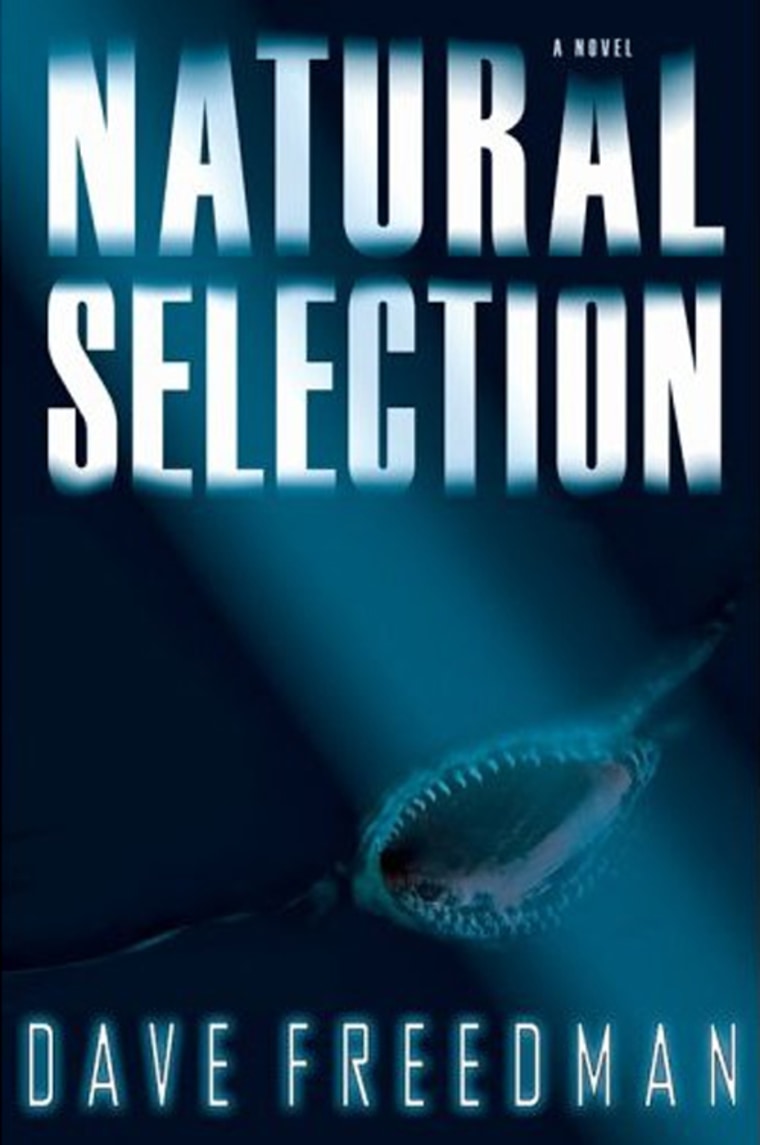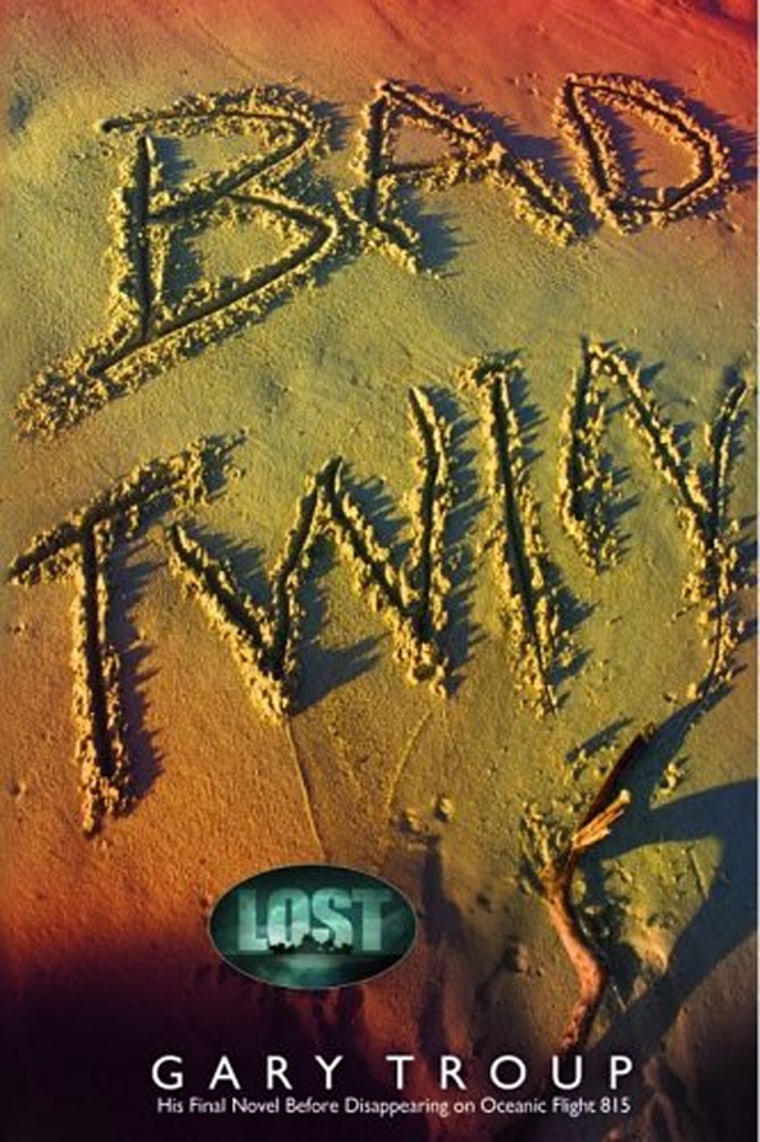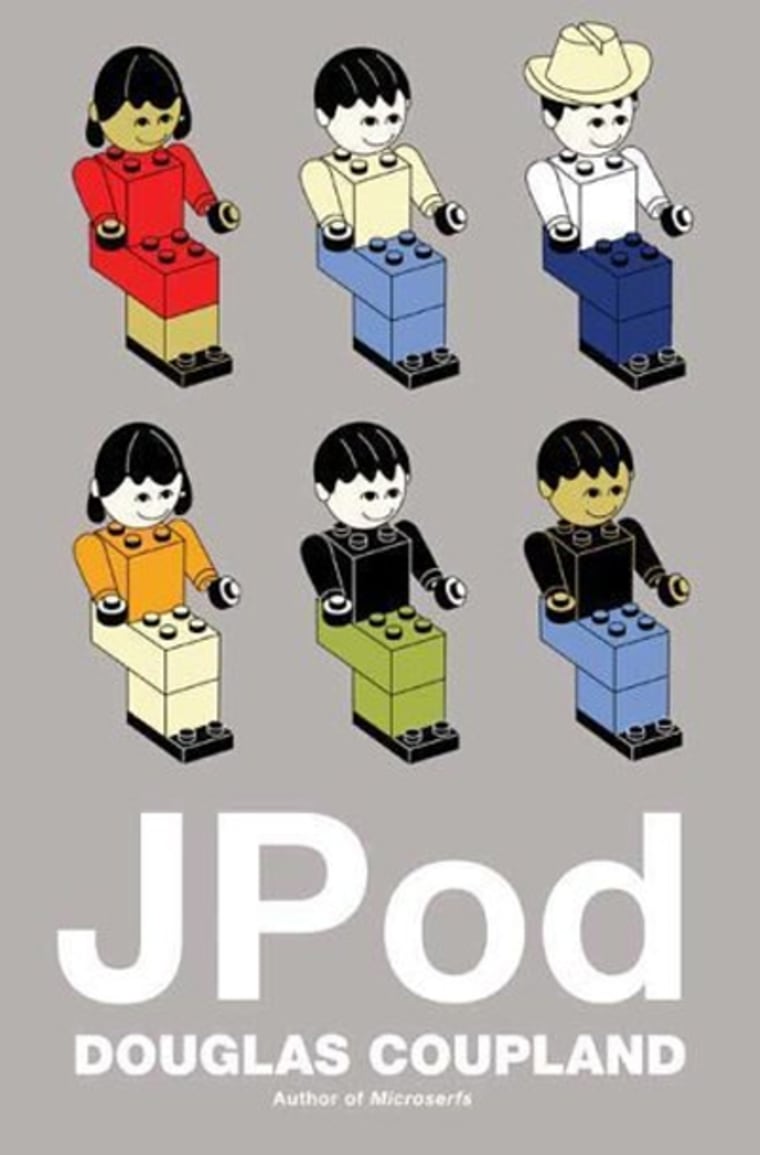The term "beach book" often refers to fluffy romances, chick lit, or chunky paperback thrillers, books whose plots you forget before you've even dusted the sand off your swimsuit. We've found some of those books for this summer book roundup, sure. Who doesn't occasionally seek out a read to take your mind off real life?
But not all beach books have to fit that narrow category. "Which Brings Me to You" is a lovely tome told in letters, and Elinor Lipman's "My Latest Grievance" is witty and genuine. Douglas Coupland's "JPod" isn't a worthy successor to his hilarious "Microserfs," but he remains the king of the perfectly placed pop-culture detail, and some of his rapid-fire writing is laugh-out-loud funny.
Looking for a book to scare you out of the water? Sure, "Jaws" kept a nation out of the oceans for at least a year, but "Natural Selection," a debut novel about flying killer manta rays (no, really) is gonna need a bigger boat. And the castaways on ABC's "Lost" may need to keep themselves occupied with the show's tie-in mystery, "Bad Twin," but the rest of us have access to better books. —Gael Fashingbauer Cooper
Bite meBookstore shelves are packed with fish-out-of-water stories, but “Natural Selection” (Hyperion, $22) may be the first novel to take the metaphor literally.

Evolution, it seems, bites. That’s the premise behind this would-be thriller by first-time novelist Dave Freedman, as manta rays adapt to a dwindling food supply by growing to the size of hang gliders, sprouting razor-sharp teeth and learning to fly. In theory, the idea of benign creatures bursting out of their environment and developing a taste for human blood has plenty of potential, but the tension simply isn’t there. Because Freedman doesn’t impart the rays with even a semblance of a personality, they resonate about as much as a shark riding a bike or a goldfish driving a car. Scary? Not too. The human characters — a rag-tag group of scientists — aren’t much more multi-dimensional.
For a book about an airborne killing machine, the body count is remarkably low. Several sea-creatures-who-bite-folks beach-reads (including Peter Benchley’s “Jaws” and Steve Alten’s “MEG” novels) have done a far better job of creating nail-nibbling scenarios, a sense of suspenseful fun and more fully-realized characters. If only “Natural Selection” had found a way to evolve into a more compelling read. —Brian Bellmont
The 'Lost' book"Bad Twin" (Hyperion, $22), attributed to fictional author Gary Troup, was written for one purpose: Hyperion and ABC are both owned by Disney, and to tie in with ABC's Hyperion put out this slim detective story. The book has been referred to on the show several times — Troup has been written into the script as one of the dead passengers, and con-man character Sawyer has been seen reading the discovered manuscript, eager to find out "whodunnit."

Indeed, if you're stuck on a deserted island without a library, "Bad Twin" might be a good distraction. Of course, the side of a cereal box might be a good distraction. In our world, there are hundreds of mystery novels that are better than the thinly plotted "Bad Twin." Scruffy detective Paul Artisan is set on the trail of a missing twin who's the heir to a vast fortune. Artisan himself is every scrappy James Rockford-esque PI out there, the most interesting thing about him being that he shares an elderly dog with his elderly friend, retired professor Manny Weissman. Where most people might consult an encyclopedia, Paul consults Manny.
The case he's on isn't worth much discussion. Not only could Sawyer not figure out from the plot whodunnit, but it's so unguessable that the book uses the last 10 pages to explain everything that happened. "Lost" fanatics may want to borrow a copy just for the occasional dropped clues to the show's larger mystery — Artisan stops off accidentally at a Hanso Foundation office, John Locke is referred to, a stewardess is named Cindy, all tidbits from the show. The Widmore family, introduced in the "Lost" season finale, plays a prominent role in the book. But sooner or later, some "Lost" fanatic will compile the clues online, and even show devotees can skip "Bad Twin" entirely. —Gael Fashingbauer Cooper
Take a letterThe epistolary novel “Which Brings Me To You” (Algonquin Books, $24) is one of those books that is so enjoyable to consume that you start thinking about which of your friends to send it to first — and then you resent every interruption that makes you put it down.
In the opening pages, John and Jane meet at a wedding, fool around in a coat closet, and in a fit of senseless romanticism decide to write letters to each other. What follows is six months of “confessions,” in which they share their painful romantic histories in letters of escalating importance.
Anyone who has experienced this kind of strangely immediate intimacy will recognize it, and co-authors Steve Almond (“Candyfreak”) and Julianna Baggott (“Girl Talk”) expertly capture the swooning optimism hiding in letters that are often arch or even glib. But as deftly knowing as the story is about emotional complexity, it is the bright and funny writing, even in the telling of sad stories, that makes the book great reading.
The only identifiable weakness is the ending, which feels abrupt and is the only moment in which complicated feelings are treated in a simplistic way. But the book as a whole is enormously satisfying. —Linda Holmes
Pod people

Douglas Coupland's "JPod" (Bloomsbury, $25) has been called "Microserfs 2.0." It's not quite a sequel to Coupland's 1995 book about a group of goofball Microsoft employees, but anyone who delighted in that classic will relish the similarities. Both books focus on a group of Pacific Northwest techies — the JPodders work for a video-game company in Vancouver, and sit together in a pod where everyone's last name begins with "J". The narrator of "JPod," Ethan, has a self-deprecating, witty voice that's at first almost interchangeable with that of Daniel in "Microserfs," and his goofy pals feel familiar, too.
Coupland remains king of the perfectly placed pop-culture detail. He describes humidity as feeling "like hundreds of strangers touching me," and notes that Kodak as a company is so outdated its mere name "makes me feel like I'm at a garage sale." Readers will savor some of his sentences and laugh out loud at others. Anyone who's had a clueless boss can relate to the JPodders' frustration as they're forced to add a hip turtle (based on "Survivor" host Jeff Probst — don't ask) into their otherwise realistic skateboarding game.
But for all its juicy pop-culture detail and crazy techie antics, almost every word of "Microserfs" rang true. "JPod" goes off the realism rails almost instantly, when Ethan's pot-growing mother electrocutes a biker and his brother starts stashing illegal Chinese immigrants in Ethan's apartment. It gets even weirder when Coupland himself becomes a character. The switch from simply silly to absolutely unbelievable is jolting. Coupland fans may tolerate his idiosyncrasies (15 pages of prime numbers with one non-prime hidden within, the first 100,000 digits of pi with one error), but they still want characters and happenings they can, somehow, relate to. "JPod" is an enjoyable read for the most part, but readers must be forgiven if they find themselves giving up on following the plot about two-thirds of the way through. —G.F.C.
Family affairsThe exposition in Elinor Lipman’s “My Latest Grievance” (Houghton Mifflin, $24) is not the smoothest; Lipman tends to put overly thoughtful speeches in the mouths of her precociously intellectual characters — the narrator, “prematurely sardonic” sixteen-year-old Frederica Hatch, and her professor parents.
The plot is soap-operatic: David Hatch’s flighty first wife, Laura Lee French, re-inserts herself into the Hatches’ lives and begins a scandalous affair with a college president, whose wife tries to kill herself. The book is oddly paced as well: bursts of events, followed by stretches where nothing much happens.
But readers won’t find themselves bothered by the structural lapses; Lipman’s prose is brisk and funny, and the Hatch family is hilariously real, warm and loving but with convincing flaws. The Hatches all live in a dormitory at a women’s college, where the senior Hatches serve as dorm parents, and Frederica’s narration is spot-on in its renditions of the college president’s spoiled daughter, faculty-union meetings, and the details of single-sex dorm life in 1976. It’s not credible, for example, that the family would invite the troublesome Laura Lee to spend the holidays — but the quarreling that results is witty and genuine. The story itself isn’t great, but Lipman’s prose is. —Sarah D. Bunting
Gael Fashingbauer Cooper is MSNBC.com's Books Editor. Brian Bellmont is a writer in Minneapolis. Linda Holmes is a writer in Bloomington, Minn. Sarah D. Bunting is a writer in Brooklyn.